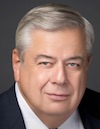|
|
On July 4, 1776, approximately 2.5 million people lived in the 13 colonies of King George III. Today 321.2 million of us live in these United States.
The Second Continental Congress appointed a committee of five to draft the Declaration of Independence – Benjamin Franklin, John Adams, Thomas Jefferson, Roger Sherman and Robert R. Livingston. Jefferson produced the first draft, which Franklin and Adams edited. It was submitted to the Continental Congress on June 28 and after further revisions and additions, finally adopted on July 4. Fifty-six members of the Congress signed it.
• John Hancock, President of the Congress, was the first signer.
• Benjamin Franklin, 70, of Pennsylvania, was the oldest signer.
• Edward Rutledge, 26, of South Carolina was the youngest.
What kind of people were the 56 signers of the Declaration of Independence?
They were well-educated men of means. Twenty-four were lawyers and jurists. Eleven were merchants, and nine were farmers or large plantation owners.
They signed the Declaration of Independence knowing full well the penalty would be death if they were captured. Nevertheless, they pledged their lives, their fortunes and their sacred honor to the cause of Independence. And many paid a terrible price.
Nine fought and died from wounds or hardships suffered during the Revolutionary War.
Five were captured by the British, charged as traitors, and tortured before they died.
Twelve had their homes ransacked and burned.
Two lost their sons serving in the Revolutionary Army; another had two sons captured.
Carter Braxton of Virginia, a wealthy planter and trader, saw his ships swept from the seas by the British Navy. He sold his home and properties to pay his debts, and died in rags.
Thomas McKeam was so hounded by the British that he was forced to move his family almost constantly. He served in the Congress without pay, and his family was kept in hiding. His possessions were taken from him, and poverty was his reward.
Vandals or soldiers looted the properties of Dillery, Hall, Clymer, Walton, Gwinnett, Heyward, Ruttledge, and Middleton.
At the battle of Yorktown, Thomas Nelson, Jr., saw that British General Cornwallis had made the Nelson home his headquarters. He urged General Washington to open fire. The home was destroyed, and Nelson died bankrupt.
Francis Lewis had his home and properties destroyed. The enemy jailed his wife, and she died within a few months.
John Hart was driven from his wife's bedside as she was dying. Their 13 children fled for their lives. His fields and his gristmill were laid to waste. For more than a year he lived in forests and caves, returning home to find his wife dead and his children vanished.
So please take a few minutes while enjoying your 4th of July holiday and silently thank these patriots. It's not much to ask for the price they paid.
America is a great country. You can say what you wish without being concerned about reprisal. You can go to the church of your choice. You have the opportunity to make something positive happen for yourself and those dear to you. And you do not have to be fearful about what you do regarding your future.
No other place in the world has these same freedoms.
That said, America is facing some tough challenges today, both from around the world and within our own borders.
Domestically, our economy is still struggling, our healthcare system and schools need fixing, and our lack of direction needs serious consideration. Faith in our government is at a low point.
Bipartisanship and reaching across the aisle are perceived by far too many as weaknesses instead of good government. Civility, at times, seems like a thing of the past.
In the Middle East, after more than a decade of war in Afghanistan and Iraq, the region is more volatile and dangerous than ever. Terrorism knows no borders. The very freedoms we cherish are threatened every minute of every day. Just think back to the words of Ronald Reagan:
“Freedom is never more than one generation away from extinction. We didn’t pass it to our children in the bloodstream. It must be fought for, protected, and handed on for them to do the same.”
So how we respond to these challenges will go a long way toward determining whether we can remain what he so famously called “a shining city on a hill.”
We are still the beneficiaries of the stand taken on July 4, 1776. As we honor America and celebrate our freedoms, we should learn from the example set by our nation’s Founders.
Each of us needs to look in the mirror and ask, “Have I done enough to ensure the America we love will continue to progress and thrive?”
When President Reagan left office in 1989, he had this assessment for America:
“She’s still a beacon, still a magnet for all who must have freedom, for all the pilgrims from all the lost places who are hurtling through the darkness, toward home.”
More than twenty-five years later, America is still a beacon to the world. It is up to each and every one of us to ensure she remains so for generations to come.
So as you eat hot dogs and hamburgers and see some of the $247.1 million worth of fireworks (most imported from China) that will burst in the night sky, think about what President Reagan said and what our next President is going to have to do.
Happy Fourth.
Bob Dilenschneider
* * *
Robert L. Dilenschneider is chairman and founder of the Dilenschneider Group, Inc.



 The ridiculously high prices Americans are paying at the supermarket might influence how—or if—they vote in November.
The ridiculously high prices Americans are paying at the supermarket might influence how—or if—they vote in November. At a moment in history when there are so many conflicts among peoples here and abroad, let us put our differences aside and celebrate this wonderful season in a spirit of togetherness.
At a moment in history when there are so many conflicts among peoples here and abroad, let us put our differences aside and celebrate this wonderful season in a spirit of togetherness. The news announcing the death of Henry Kissinger, the last of the prevaricating politicians and so-called statesmen who stole my future and that of thousands of other young Americans, got me thinking about Walter Cronkite.
The news announcing the death of Henry Kissinger, the last of the prevaricating politicians and so-called statesmen who stole my future and that of thousands of other young Americans, got me thinking about Walter Cronkite.


 Have a comment? Send it to
Have a comment? Send it to 
No comments have been submitted for this story yet.